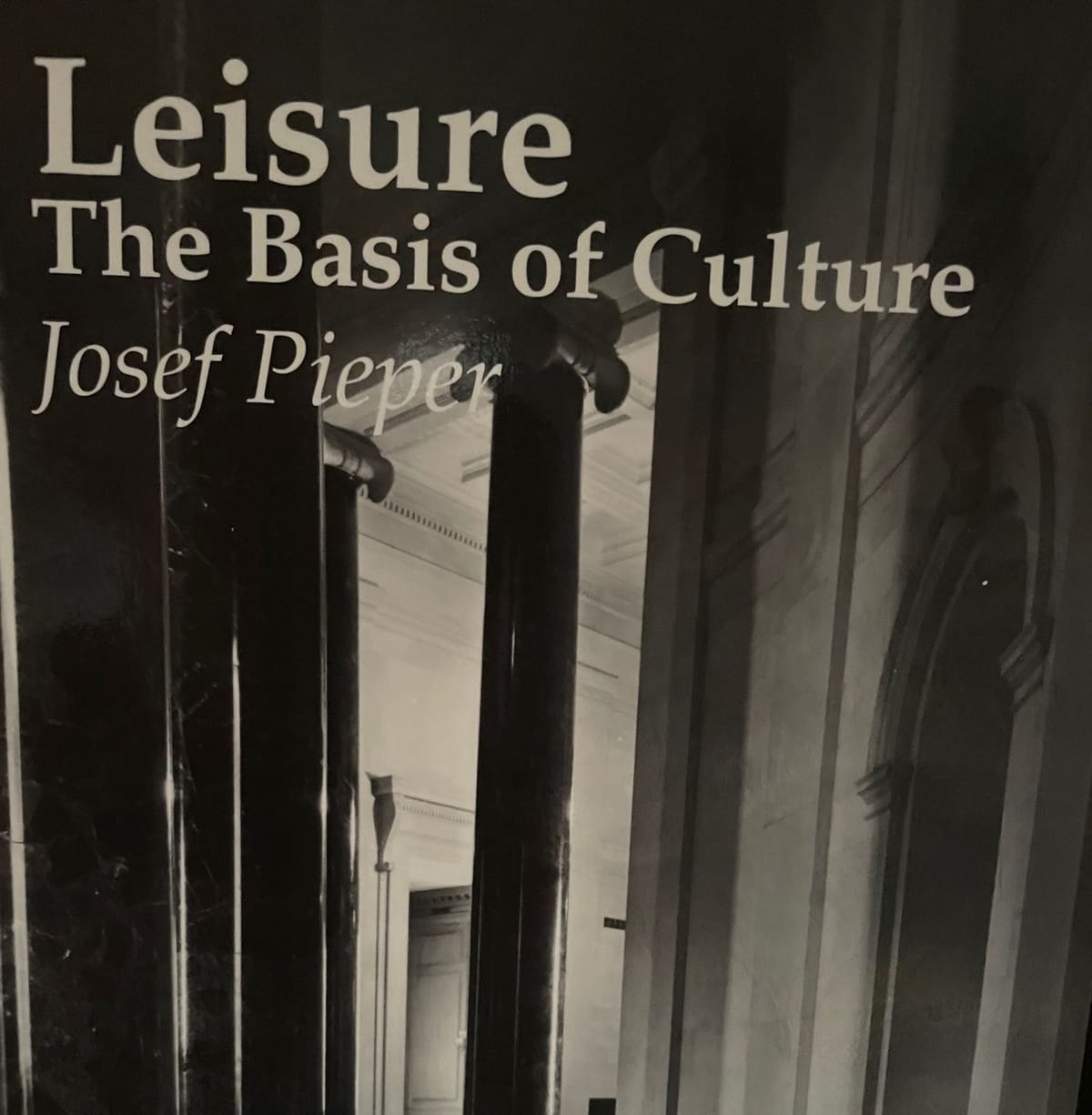Leisure, the Basis of Culture, by Josef Pieper
A Micro-Review/Essay

A Micro-Review/Essay
“[T]here cannot be unused space in the total world of work.”
Obsessed with efficiency? I am. At least I used to be. I’m a recovering efficiencoholic. It was bad, so bad that my time and energy spent on being efficient far exceeded the time and energy I saved through my efficiency, so bad that I didn’t even realize it, until I sat back and reflected on what had been become of my mental world. Pieper could’ve diagnosed it. He realized we live in a world of “total work.” There can be no time wasted, no time that isn’t dedicated to something. Even relaxation is intended primarily as a way to rejuvenate ourselves for more work. I know a few people who seem to have caught onto this existential problem. They enjoy themselves at every opportunity, and they don’t care if the enjoyment leaves them exhausted on Monday morning. These people are more blessed than the rest of us slaves to the world of total work, but even they wouldn’t make it on Pieper’s blessed list. Yes, they’re not prostituting leisure to work, but neither is their leisure true leisure. Leisure is leisure because it intends nothing and accomplishes nothing. It’s not on a bucket-list crusade. It’s not on a drunken crusade. It’s not on a squeeze-every-moment-out-of-life crusade. Leisure is blessed because it does nothing. When we do nothing, we become receptive because we can listen. And the things we hear? Those are the things that make leisure blessed.
